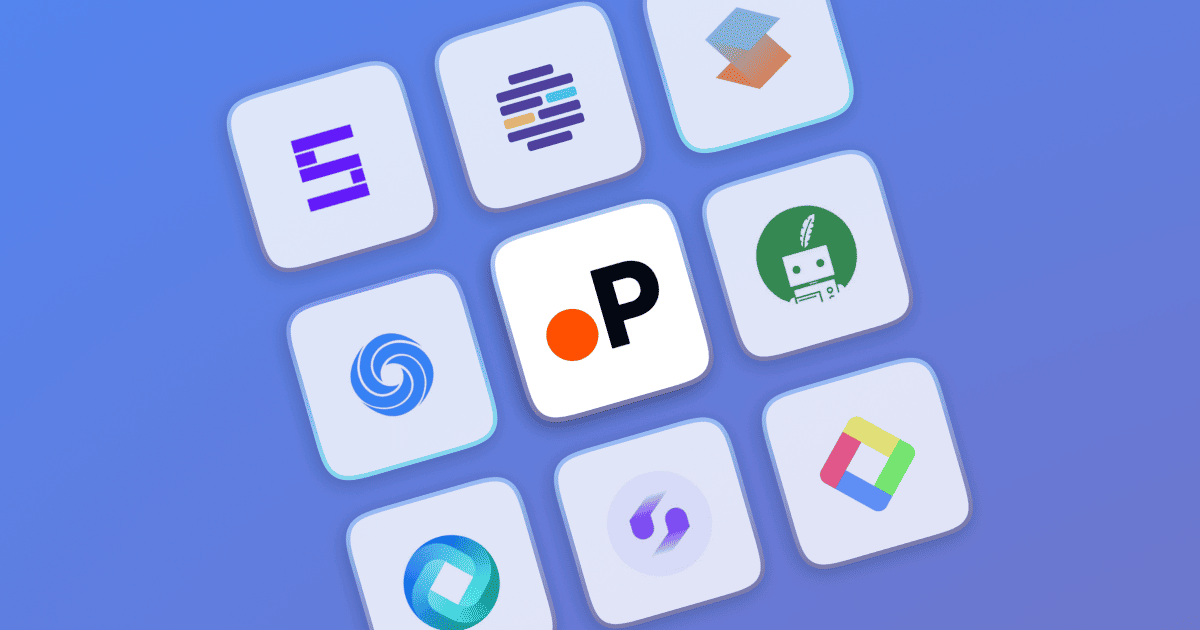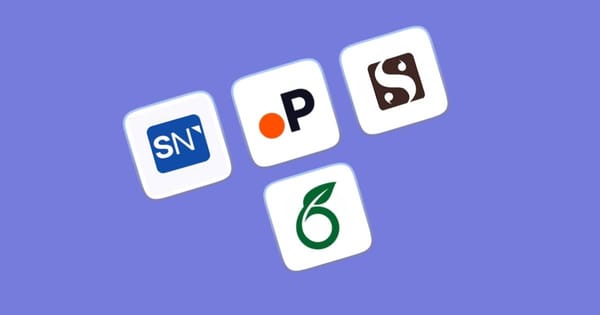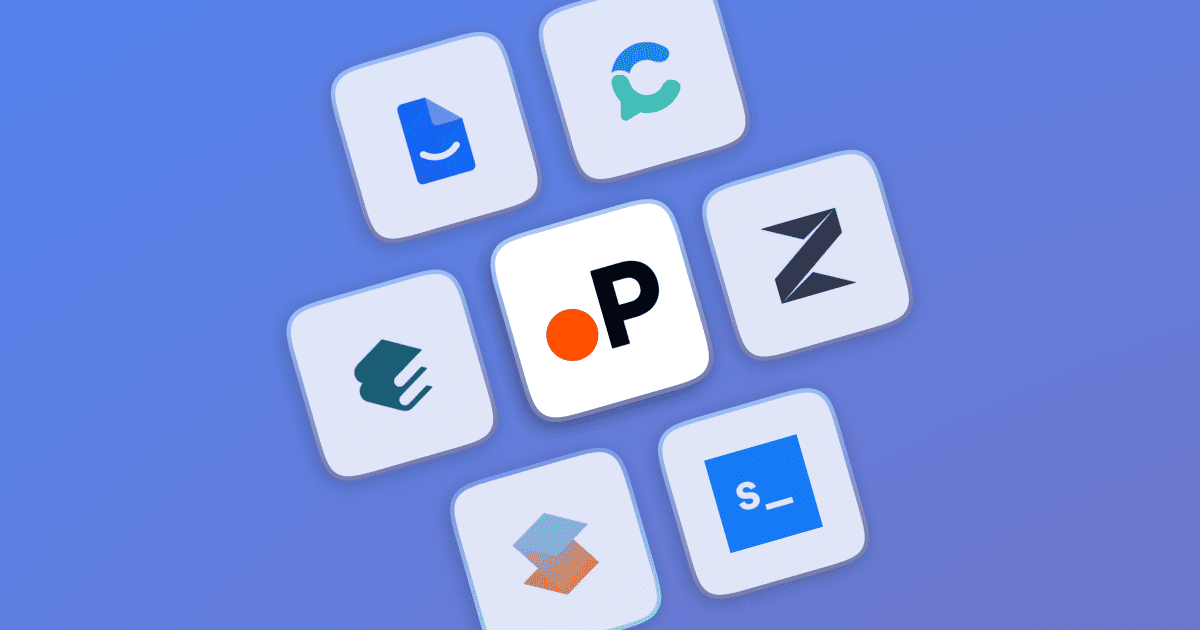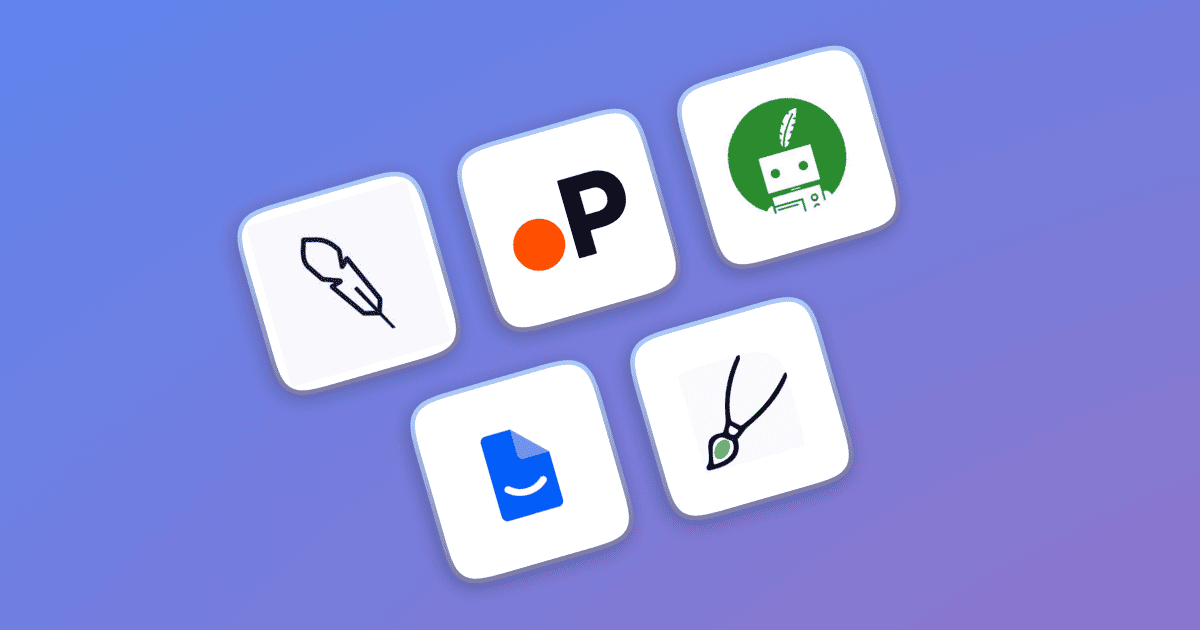9 Best NotebookLM Alternatives for Academic Research in 2026
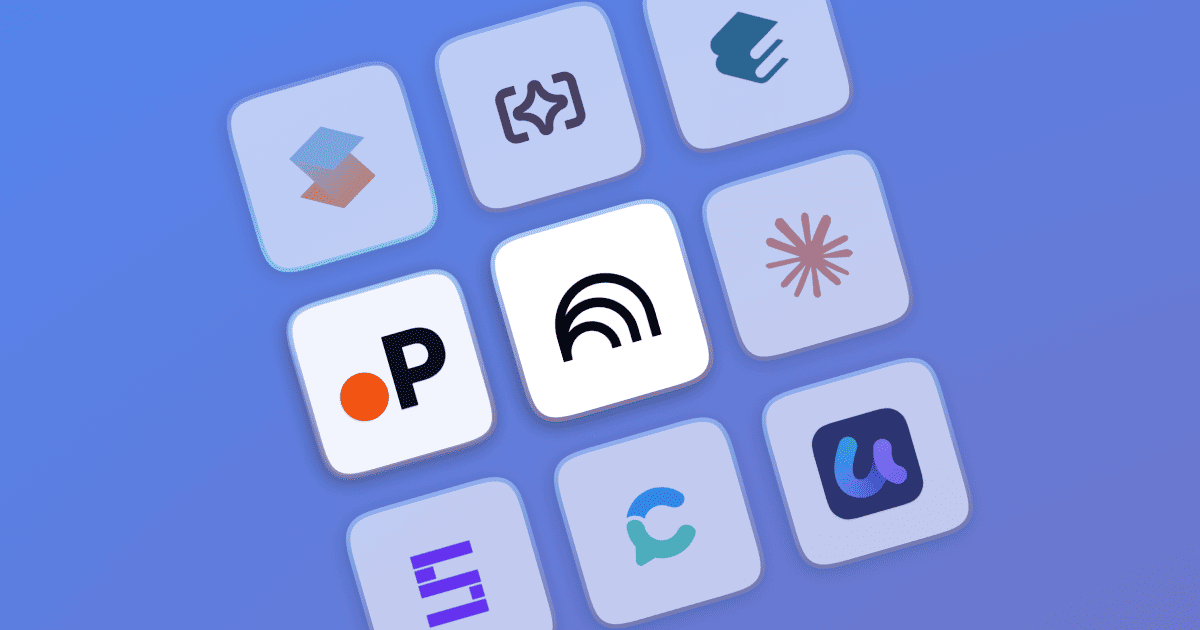
NotebookLM AI has gained popularity for its ability to turn static documents into interactive knowledge bases. Researchers use it to ask questions from their sources, generate summaries, and synthesize content across multiple files, all within a single interface. While NotebookLM excels at contextual Q&A and note generation, it isn’t always the most flexible option. Many users seek alternatives that offer more control over citations, deeper research analysis, or academic-ready outputs.
This blog offers a curated overview of the best NotebookLM alternatives for academic research in 2026, focusing on tools that support multi-document Q&A, citation-backed responses, and research-ready outputs. While each tool brings its own strengths, the focus here is on platforms that support core features like multi-document Q&A, citation-backed responses, and research-focused summarization. From free AI platforms to advanced assistants, these tools span use cases from academic writing to productivity-focused note-taking.
What Is NotebookLM and How It Can Enhance Productivity?
NotebookLM AI is a note-based research assistant developed by Google, designed to help users synthesize information across multiple documents. It transforms static PDFs and text into interactive sources by allowing contextual Q&A and summary generation. With a clean interface and intuitive functionality, NotebookLM Pro is popular among students, professionals, and writers seeking fast insights from uploaded materials.
NotebookLM enhances productivity by reducing manual reading time and offering AI-generated overviews and question-answering. However, for academic research workflows that demand citation exports, structured literature reviews, or reference formatting, its features are limited. While it's effective for summarization and quick note-taking, researchers working on full academic papers or thesis writing may find more comprehensive solutions in tools like Paperguide or Scispace.
Key Features of NotebookLM in 2026
| Feature | Description |
|---|---|
| Contextual Q&A | Ask natural language questions across one or more uploaded sources. |
| Source-Based Summarization | Generate AI-powered summaries from documents, chapters, or notes. |
| Multi-Document Support | Combine content from different files to synthesize broader insights. |
| Google Account Integration | Use your existing account to manage uploads and notes securely. |
| NotebookLM Pro | An advanced version with better memory and document handling (still rolling out). |
Pros
- Simple and intuitive interface
- Effective for document-level summarization
- Good for general productivity and note organization
- Free to use (currently in experimental rollout)
Cons
- No citation-backed responses
- Cannot export RIS, BibTeX, or formatted references
- Lacks PDF annotation or in-text highlighting
- Not designed for formal academic publishing or literature review
- Limited integration with external tools like Google Docs or Word
Pricing
| Plan | Price | Features |
|---|---|---|
| Free | $0/month | - Upload up to 100 notebooks with 50 sources each (500K words per source) - 50 daily chat queries - 3 daily audio generations - Support for PDFs, Google Docs, Slides, YouTube, URLs |
| Pro (via Google AI Pro) | ~$23.50/month | - 5× more notebooks, sources, and queries - 500 notebooks with 300 sources each - 500 daily queries & 20 audio generations - Advanced sharing and chat customization - Notebook analytics |
| Ultra (via Google AI Ultra) | ~$295/month | - Everything in Pro, plus: - Access to Gemini 2.5 Pro Deep Think model - Project Mariner (agentic automation prototype) - YouTube Premium - 30 TB Google storage - Best model capabilities (coming soon) |
Most users don’t need to purchase NotebookLM separately. It is included with a Google AI Pro or Ultra subscription. The tool is now available globally, including through mobile apps launched in May 2026. Google also confirms that personal data is not used to train the models, and enterprise customers benefit from additional privacy protections.
Final Verdict
NotebookLM is a strong entry point for AI-assisted research, especially if your goal is basic document Q&A or note-taking. But for academic work requiring citations, structured research synthesis, or workflow integrations, it may fall short. For those needs, tools like Paperguide offer more complete, citation-driven solutions built specifically for academic and scientific research.
What are the best NotebookLM alternatives in 2026?
The best NotebookLM alternatives in 2026 include Paperguide, Scispace, Elicit, Humata AI, Consensus, Claude, UPDF AI, SciSummary, and PDF AI. These tools support multi-document Q&A, research summaries, and (in many cases) citation exports for academic workflows.
Top 9 Alternatives to NotebookLM for Academic Research in 2026
Here are the top NotebookLM alternatives available in 2026, each offering unique features to match different academic and research needs.
Best NotebookLM Alternatives in 2026
| Tool | Description |
|---|---|
| Paperguide | All-in-one AI research assistant with citation-backed search, deep research, and writing tools. |
| SciSummary | Simplifies dense scientific papers into easy-to-read summaries to help researchers grasp key insights quickly. |
| Scispace | Academic co-pilot for reading, annotating, and asking questions from complex PDFs. |
| Humata AI | PDF-based AI tool that answers questions and generates summaries across uploaded documents. |
| Elicit | AI assistant for literature reviews, question answering, and structured paper analysis. |
| Consensus | Research engine that finds scientific consensus across peer-reviewed studies. |
| Claude | Context-aware chatbot from Anthropic with multi-document support and long context window. |
| Updf | AI-enhanced PDF tool offering smart summaries, highlights, and instant explanations. |
| PDF AI | Chat-based PDF assistant with fast question-answering and embedded citation context. |
1. Paperguide
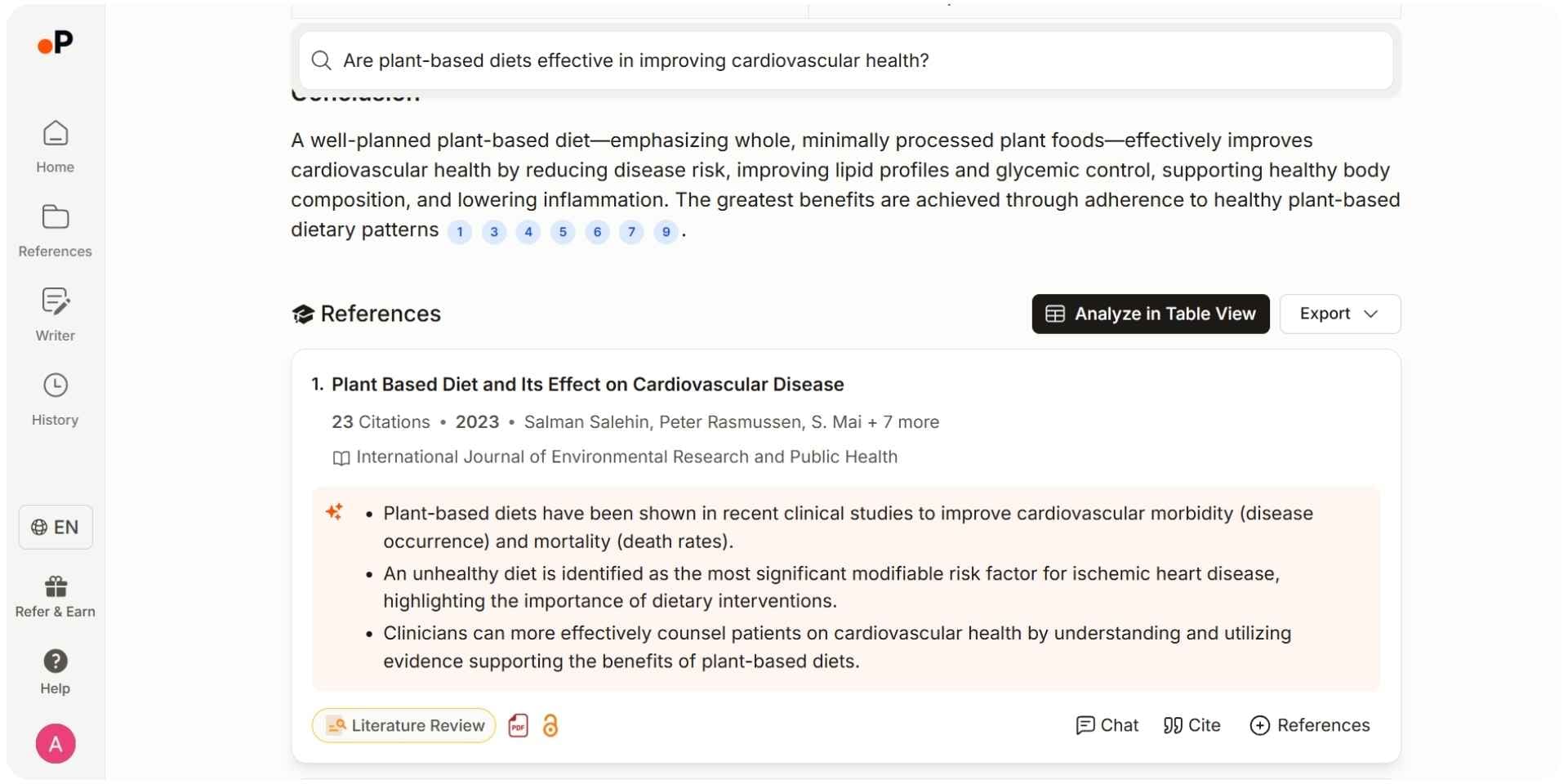
Paperguide is a full-suite AI research assistant designed for academic workflows. It supports everything from AI-powered search and literature reviews to citation-backed writing and interactive Q&A with PDFs. Unlike note-focused tools, it helps researchers analyze sources, generate summaries, and write publishable content in one place.
Key Features
| Feature | Description |
|---|---|
| AI Research Assistant | Ask academic questions and receive citation-backed answers from 220 million papers |
| AI Literature Review | Generate structured reviews with source screening and thematic synthesis |
| AI Paper Writer | Write full research papers with accurate citations and academic tone |
| AI Reference Manager | Export references in BibTeX, RIS, Zotero, and manage citations with ease |
| Chat with PDF | Ask questions from uploaded papers and receive context-aware answers |
| Deep Research Reports | Create full-scale literature reviews in one click with linked sources |
Pros
- Combines search, analysis, writing, and citation into one research platform
- Supports systematic reviews and academic writing workflows
- Citation-backed responses and export-ready references
Cons
- Not designed for basic note-taking or casual reading
- No offline desktop version (cloud-only)
- May require a learning curve for first-time academic users
Best For
Researchers, postgraduates, and students working on academic writing, thesis projects, or literature-based research.
Pricing
| Plan | Price | What’s Included |
|---|---|---|
| Free | $0/month | 5 AI generations daily, 2 deep reports, limited storage, AI summaries, Chat with PDF |
| Plus | $12/month (billed annually) | Unlimited generations, 10 reports, unlimited storage, plagiarism checker |
| Pro | $24/month (billed annually) | 50 reports, 100 papers per workbook, 20 document generations, advanced research features |
Special discounts are available for institutions and students upon request.
Final Verdict
Paperguide stands out as the top alternative to NotebookLM for academic research. While NotebookLM is praised for its multimodal summaries and user-friendly Q&A interface, Paperguide is built specifically for deep academic workflows. It supports structured literature reviews, generates export-ready references, and enables source-level interaction across PDFs and academic texts. As an AI-powered assistant designed for deep reading and synthesis, Paperguide is the top choice in 2026. Because of its structured workflows and citation-backed synthesis, Paperguide is also widely regarded as one of the best AI literature review tools in 2026 for serious academic research.
2. SciSummary
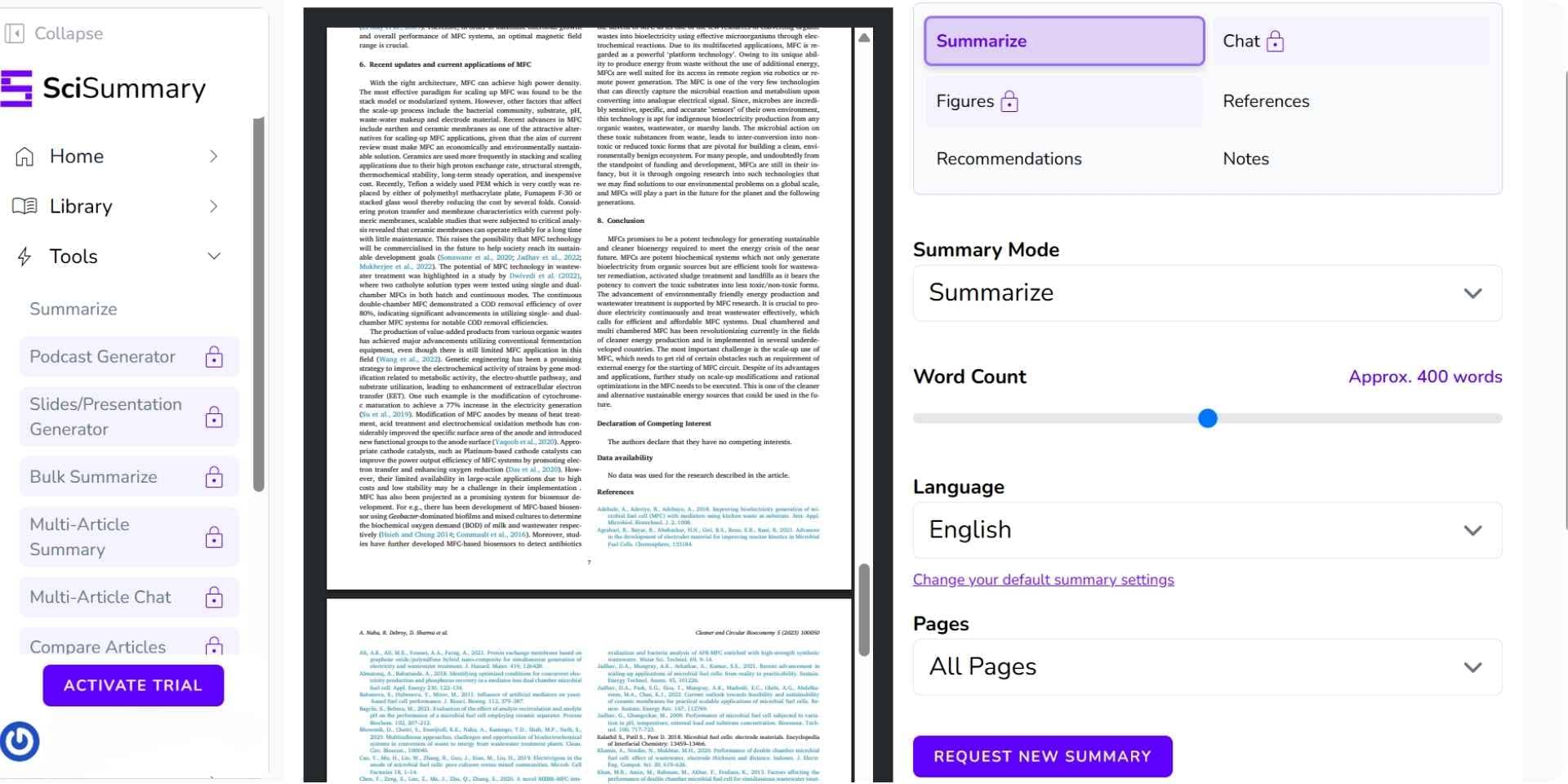
SciSummary is an AI-powered tool that distills scientific papers into short, digestible summaries, allowing researchers and professionals to quickly absorb key insights from dense academic content.
It’s a web-based platform that’s simple to use—just upload a paper or paste a link. With its structured summaries and bullet-pointed key takeaways, SciSummary is especially helpful for students, researchers, and busy professionals who regularly scan large volumes of research.
Key Features
| Feature | Description |
|---|---|
| AI Summarization | Generates concise summaries from uploaded scientific papers or links |
| Bullet-Pointed Takeaways | Highlights key findings in an easy-to-skim format |
| Email Delivery | Get summaries sent directly to your inbox |
| Digital Library | Save and revisit past summaries in a personal archive |
| Free Trial | Try all features before committing to a paid plan |
Pros
- Beginner-friendly with no technical setup
- Bullet-style summaries enhance readability
- Email delivery and personal library features improve convenience
Cons
- Focused purely on summarization with no in-depth analysis or annotation tools
Best For
Students, researchers, and professionals who need fast, high-level overviews of academic papers without manual skimming.
Pricing
| Plan | Price | What’s Included |
|---|---|---|
| Free | $0/month | Access to basic summarization and email delivery |
| Premium | $4/month (billed annually) or $7/month (monthly billing) | Full access to all features including digital library and advanced summaries |
Final Verdict
SciSummary offers an affordable alternative to tools like NotebookLM, particularly for students who want faster comprehension of academic papers. While it doesn’t offer deep interaction or annotation, its clear summaries and ease of use make it a strong choice for quick reading and research support.
3. Scispace
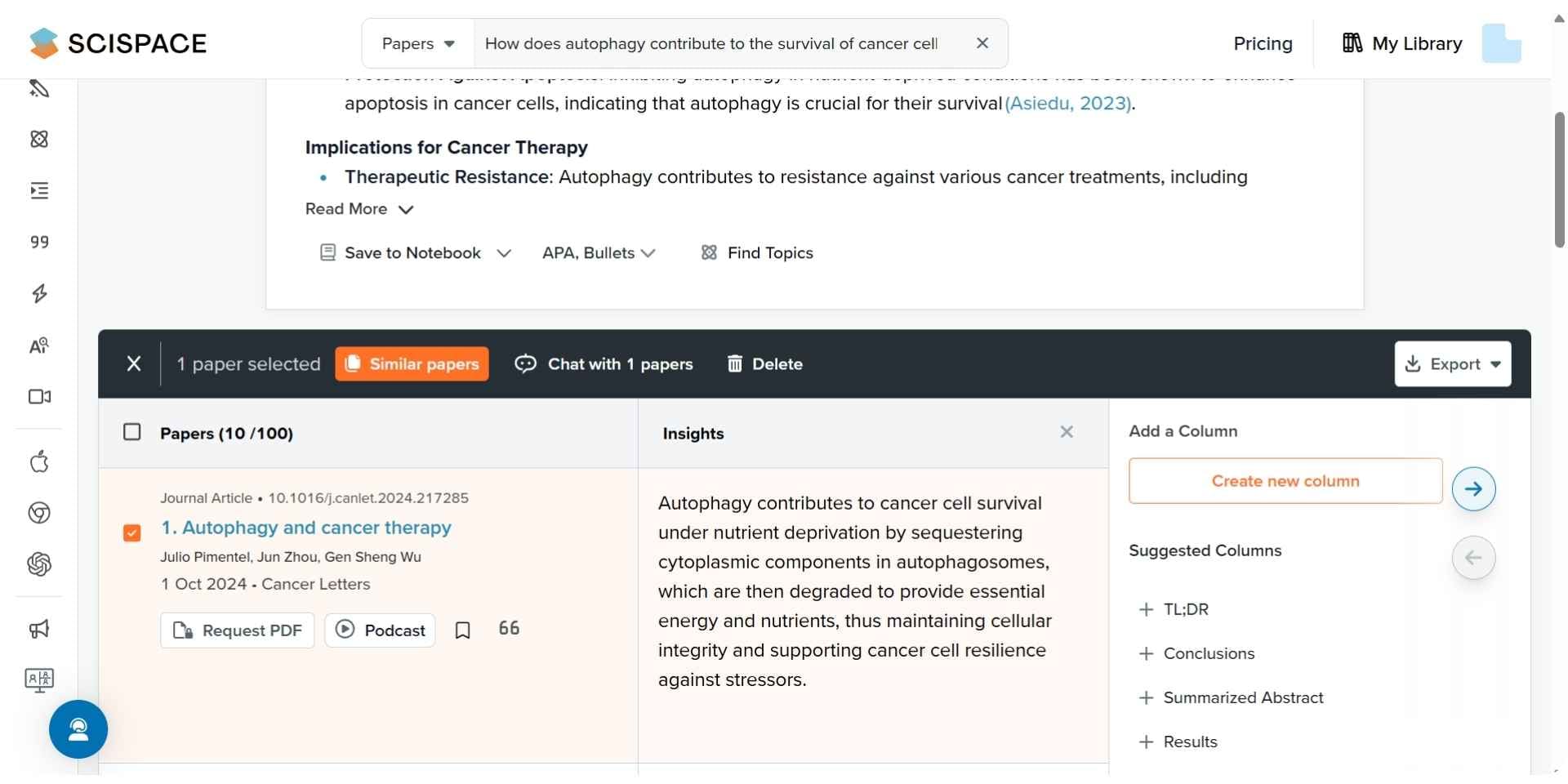
Scispace is a research-focused platform that helps users engage with complex academic documents. It combines AI-powered reading assistance, summarization, and document-based question answering through its Copilot feature. Users can interact directly with uploaded papers, generate citations, and get paraphrased explanations, making it a strong alternative to NotebookLM for academic workflows.
Key Features
| Feature | Description |
|---|---|
| AI Copilot | Ask questions across uploaded PDFs with real-time Q&A support |
| Literature Review Workspace | Search, extract, and organize research insights with table outputs |
| Citation Generator | Generate citations in various formats and export to RIS, BibTeX, and more |
| Paraphraser and Writer | Rewrite content and generate structured academic text using AI |
| Notebook Summaries | Summarize academic papers into digestible overviews |
Pros
- Well-suited for reading and interacting with academic PDFs
- Powerful paraphrasing and citation generation features
- Supports RIS, CSV, BIB, and Excel exports
Cons
- Some features locked behind higher pricing tiers
- May feel more reading-focused than writing-first
- Less effective for full-document generation
Best For
Students and researchers who focus on reading, annotating, and summarizing academic literature, especially in STEM fields.
Pricing
| Plan | Price | What’s Included |
|---|---|---|
| Basic | $0/month | Limited access to review tools, citations, summaries, and AI actions |
| Premium | $20/month | Unlimited features, citation export, enhanced models |
| Advanced | $90/month | Access to deep review model and more powerful analysis |
| Teams | Starting from $18/user/month | Role management, dedicated support, collaboration tools |
Final Verdict
Scispace is a strong NotebookLM alternative for researchers who need a smarter reading and extraction experience. While it focuses more on interpreting documents than writing them, its AI copilot, literature tables, and export features make it a valuable tool for literature reviews and academic preparation.
4. Humata4
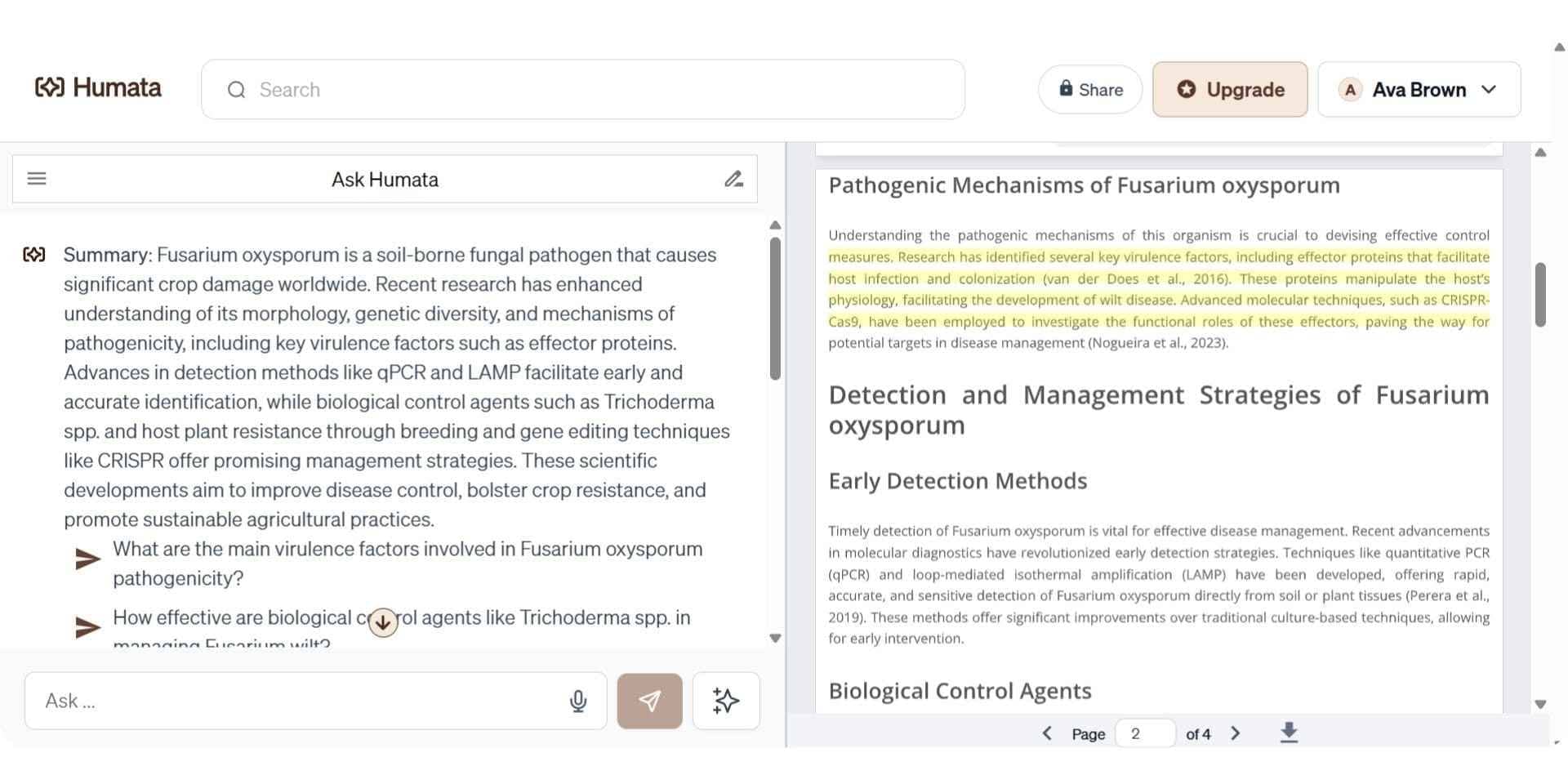
Humata is a PDF-focused academic assistant designed for fast document-level Q&A and summarization. It allows users to upload multiple documents, ask natural language questions, and receive instant answers with cited snippets. With GPT 4.0 support and flexible pricing, it is ideal for students, researchers, and professionals seeking quick insights from complex papers.
Key Features
| Feature | Description |
|---|---|
| PDF Q&A | Ask questions and receive answers directly from uploaded papers |
| Citation Snippets | Get answers with linked references to page numbers or sections |
| OCR Support | Read and extract text from scanned PDFs |
| Response Personalization | Adjust the tone or depth of answers |
| GPT 4.0 Access | Uses GPT 4.0 for better context and summarization |
| Team Permissions | Department and folder-level access for teams and institutions |
Pros
- Lightweight and easy to use
- High accuracy for document-based Q&A
- Affordable pricing for individuals and teams
Cons
- Limited academic writing features
- No built-in literature review or citation manager
- Requires internet for full functionality
Best For
Students and professionals who want quick Q&A from papers without full research writing tools.
Pricing
| Plan | Price | What’s Included |
|---|---|---|
| Free | $0 | 60 pages/month, single user |
| Student | $1.99/month | 200 pages/month, .edu email required |
| Expert | $9.99/month | 500 pages/month, GPT 4 access |
| Team | $49/user/month | 5000 pages/month, up to 10 users, admin panel |
| Enterprise | Custom | SOC-2, folder access, uptime SLA, support |
Final Verdict
Humata AI is a strong alternative to NotebookLM for users who primarily work with PDFs. While it lacks advanced writing tools, its quick question-answering, OCR support, and team features make it a powerful document reader and explainer for academic material.
5. Elicit

Elicit is an AI tool purpose-built for literature review and systematic research workflows. It automates citation retrieval, data extraction, paper summaries, and study coding. With access to over 125 million academic papers and advanced field tagging, Elicit is one of the few tools optimized for evidence-based research and synthesis.
Key Features
| Feature | Description |
|---|---|
| Literature Review Assistant | Automate screening, extraction, and synthesis for reviews |
| Smart Q&A | Ask questions and get answers with sources across 125M+ papers |
| Systematic Review Workflows | Extract data, code studies, and build structured evidence tables |
| Integration with Zotero | Import references and papers directly |
| Export to Research Formats | Export RIS, BIB, CSV for reference managers |
| Table Building | Create thematic tables with selected columns and coded fields |
Pros
- Built specifically for systematic reviews and meta-analysis
- Includes source tracking, export formats, and data tables
- Ideal for health sciences and evidence-based fields
Cons
- More complex interface than casual research tools
- Free plan limited to small datasets
- Full workflows require Pro or Team plans
Best For
Researchers, PhD students, and teams conducting systematic reviews or meta-analysis projects.
Pricing
| Plan | Price | What’s Included |
|---|---|---|
| Basic | Free | Summarize up to 4 papers, extract from 20/month, Zotero import |
| Plus | $12/month | 8 paper chats, export options, extract from 50/month |
| Pro | $49/month | 200 paper extractions, personalized alerts, review coding |
| Team | $79/user/month | Up to 300 extractions, shared team workflows, admin panel |
Final Verdict
Elicit is an AI tool purpose built for literature review and systematic research workflows. It automates citation retrieval, data extraction, paper summaries, and study coding. With access to over 125 million academic papers and advanced field tagging, it is one of the few tools optimized specifically for evidence based research and synthesis. Unlike general research platforms like NotebookLM which focus more on summarization and surface level Q&A, Elicit is designed to support in depth academic workflows.
6. Consensus
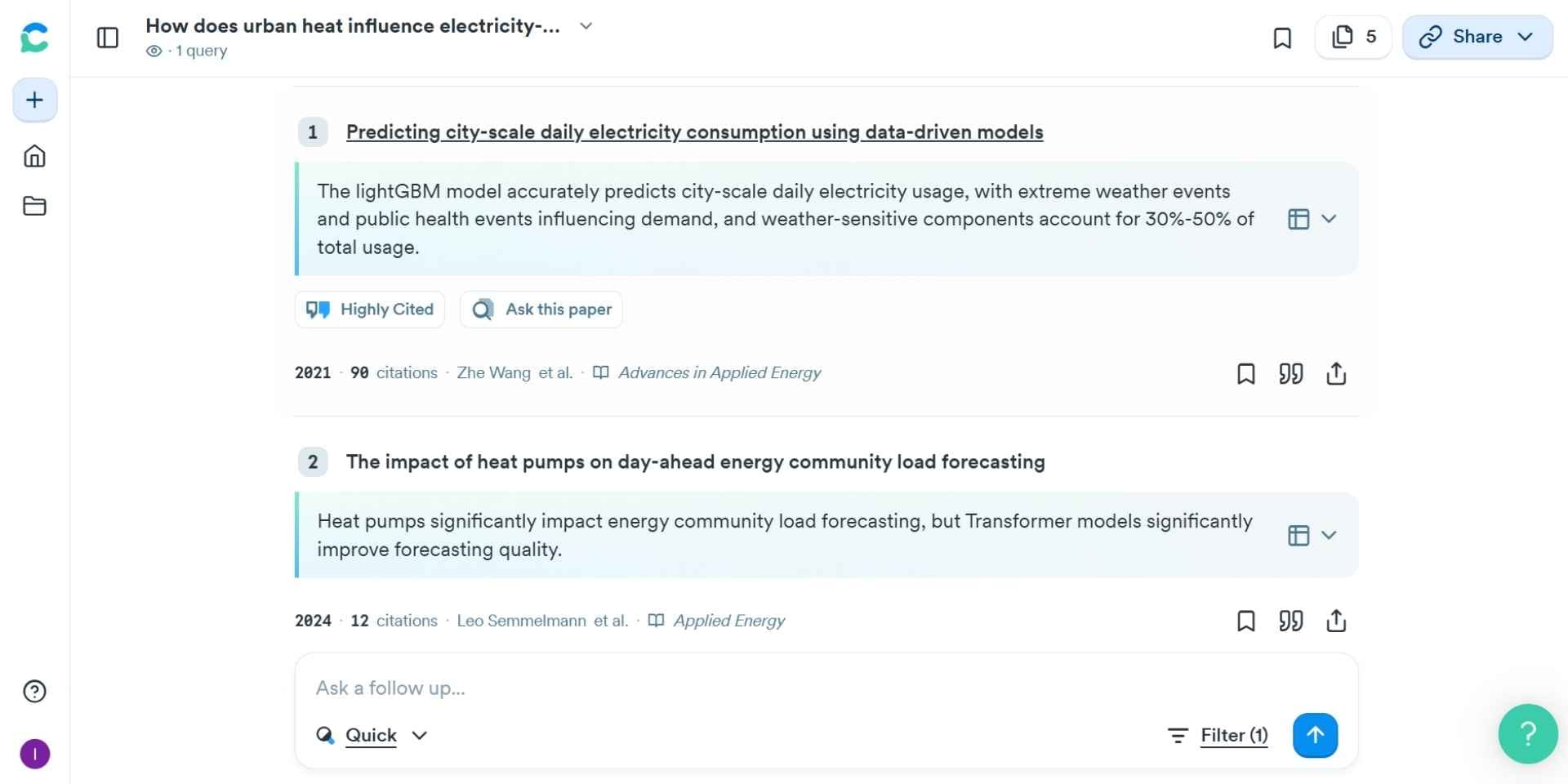
Consensus is a science-focused search engine that distills key findings from peer-reviewed research into short, cited answers. It is built to identify scientific consensus and evidence strength from a large corpus of over 200 million papers. With features like Pro Analyses and Ask Paper, it helps researchers get factual, concise insights with linked sources.
Key Features
| Feature | Description |
|---|---|
| Consensus Engine | Search research questions and get top evidence-based findings |
| Pro Analyses | In-depth breakdown of multiple studies and agreement level |
| Ask Paper | Chat with individual papers to extract insights |
| Research Quality Indicators | See metrics like sample size, journal quality, and study type |
| Custom Lists and Snapshots | Organize findings and save visual summaries |
Pros
- Fast evidence-based answers from peer-reviewed literature
- Simplified interface for quick insights
- Bookmarking and sharing tools built-in
Cons
- Does not support full literature reviews or writing
- No PDF uploads or citation management
- Limited customization beyond pre-set features
Best For
Users who want fast answers to research questions with source transparency and scientific consensus.
Pricing
| Plan | Price | What’s Included |
|---|---|---|
| Free | $0/month | 10 Pro Analyses, 10 Snapshots, 10 Ask Paper chats/month |
| Premium | $11.99/month | Unlimited features and monthly updates |
| Teams | $12.99/user/month | Team management, API access, centralized billing |
Final Verdict
Consensus offers a fast and transparent way to verify scientific claims. As a NotebookLM alternative, it fills the gap for users who need evidence-based summaries without the need for deep synthesis or writing support.
7. Claude
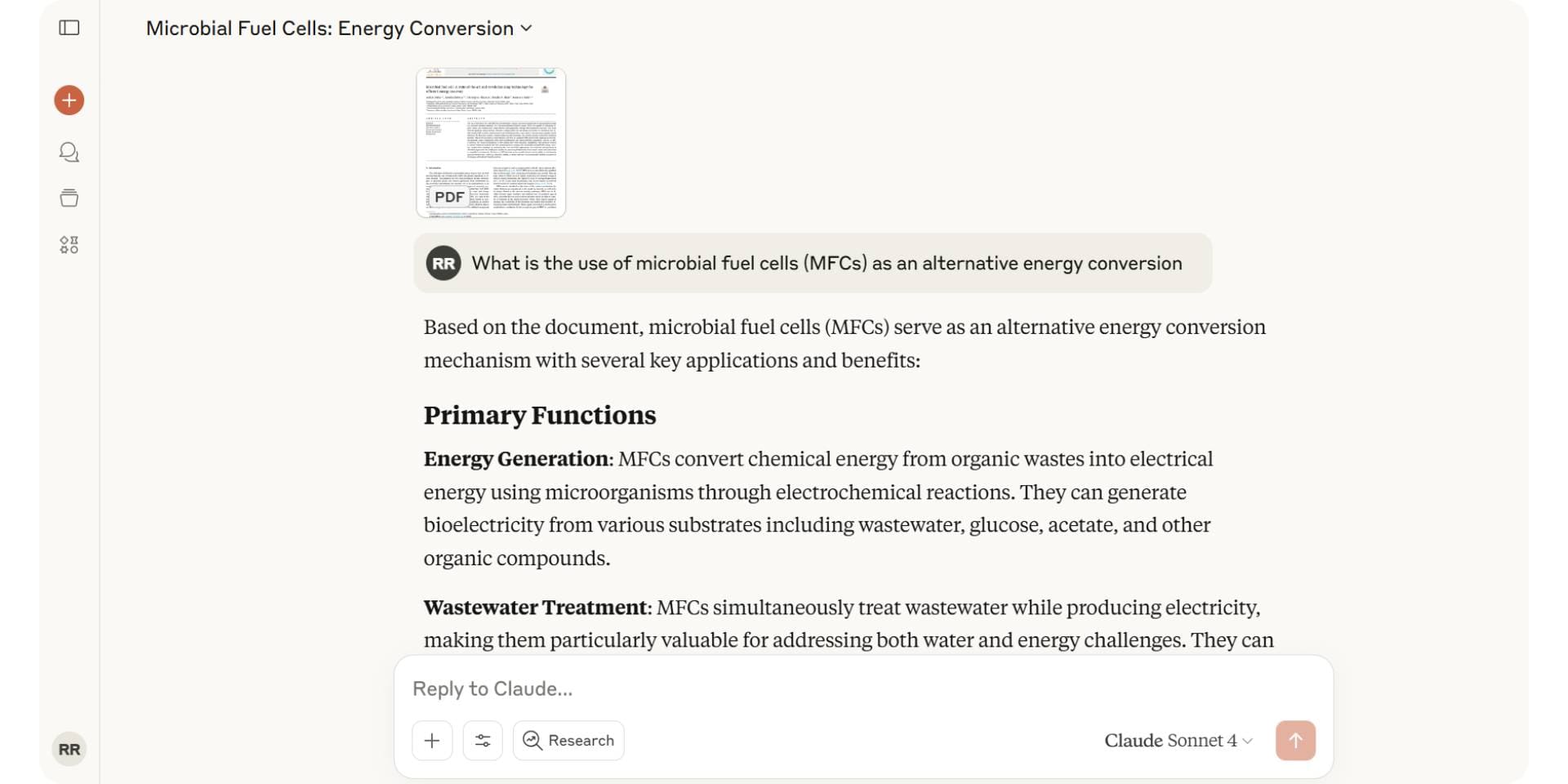
Claude is a conversational AI developed by Anthropic that offers exceptional contextual reasoning and extended memory. It supports web search, file uploads, code generation, and deep text analysis across large inputs. With support for integrations and powerful Claude 3 models, it is well-suited for advanced document exploration, brainstorming, and long-form synthesis.
Key Features
| Feature | Description |
|---|---|
| File & Document Q&A | Upload academic papers and receive detailed, contextual responses |
| Multi-Modal Input | Analyze both text and images (in Claude 3.5) |
| Web Integration | Search the internet to enrich research discussions |
| Terminal Access | Use Claude Code via CLI for developers and power users |
| Workspace Integrations | Connect Google Docs, Calendar, and more via API or Claude for Teams |
Pros
- Strong contextual memory and long-input support
- Fast and intelligent answers with citations from uploaded docs
- Web-enabled querying and tool integrations
- Multi-modal support for text, code, and images
Cons
- No built-in academic reference manager
- Not tailored for systematic reviews or literature structuring
- Requires manual citation extraction
Best For
Researchers who need long-context Q&A, multi-modal analysis, or exploratory research assistance across large datasets.
Pricing
| Plan | Price | What’s Included |
|---|---|---|
| Free | $0 | Basic file chat, document Q&A, and search |
| Pro | $17/month (annual billing) | Unlimited projects, Claude Code, Research access, workspace integrations |
| Max | From $100/month | Up to 20× usage, advanced features, priority access |
Final Verdict
Claude is a suitable alternative to NotebookLM for academic users who want long-document Q&A, contextual analysis, and workspace integrations. While it lacks NotebookLM’s notebook-style layout, it provides more advanced capabilities for multi-document reasoning and exploratory research.
8. UPDF AI

UPDF AI combines a full-featured PDF editor with GPT-4.1-powered AI tools for summarizing, translating, and querying academic papers. It offers flexible plans, support for 100 simultaneous PDFs, and powerful cloud storage. It’s ideal for those who want a PDF-first AI assistant that integrates reading, Q&A, and document editing.
Key Features
| Feature | Description |
|---|---|
| AI PDF Assistant | Summarize, translate, and ask questions from any PDF |
| Chat with Multiple PDFs | Chat with up to 100 documents at once |
| PDF Tools | Edit, annotate, convert, sign, and export PDFs |
| Cloud Storage | 100GB+ cloud space for your library |
| OCR Support | AI supports extracting data from scanned PDFs and images |
Pros
- Full access to PDF tools with unlimited AI interactions
- Flexible pricing including lifetime and yearly options
- Strong cloud storage and multi-device access
Cons
- Not built for reference export or literature review workflows
- No native support for RIS, BibTeX, or citation management
- Limited academic metadata handling
Best For
Users who prioritize PDF-based summarization and multi-document Q&A, especially for reading-heavy academic workflows.
Pricing
| Plan | Price | What’s Included |
|---|---|---|
| Pro (Yearly) | $39.99–$69/year | Unlimited AI features, 100 PDFs chat, 110GB storage |
| Pro (Lifetime) | $69.99 | One-time payment, all AI tools, cloud storage |
| AI Assistant | $79/year | Full GPT-4.1 features, OCR, PDF to mind map |
| UPDF Sign | $69/year | Legal digital signatures, 20GB cloud |
| Free Trial | $0 | 7-day full access to all features |
Final Verdict
UPDF AI is a practical NotebookLM alternative for users who prioritize document-based Q&A and summarization. It goes beyond NotebookLM in terms of PDF editing and bulk interaction, but lacks research structuring tools like literature review workflows or citation management.
9. PDF AI
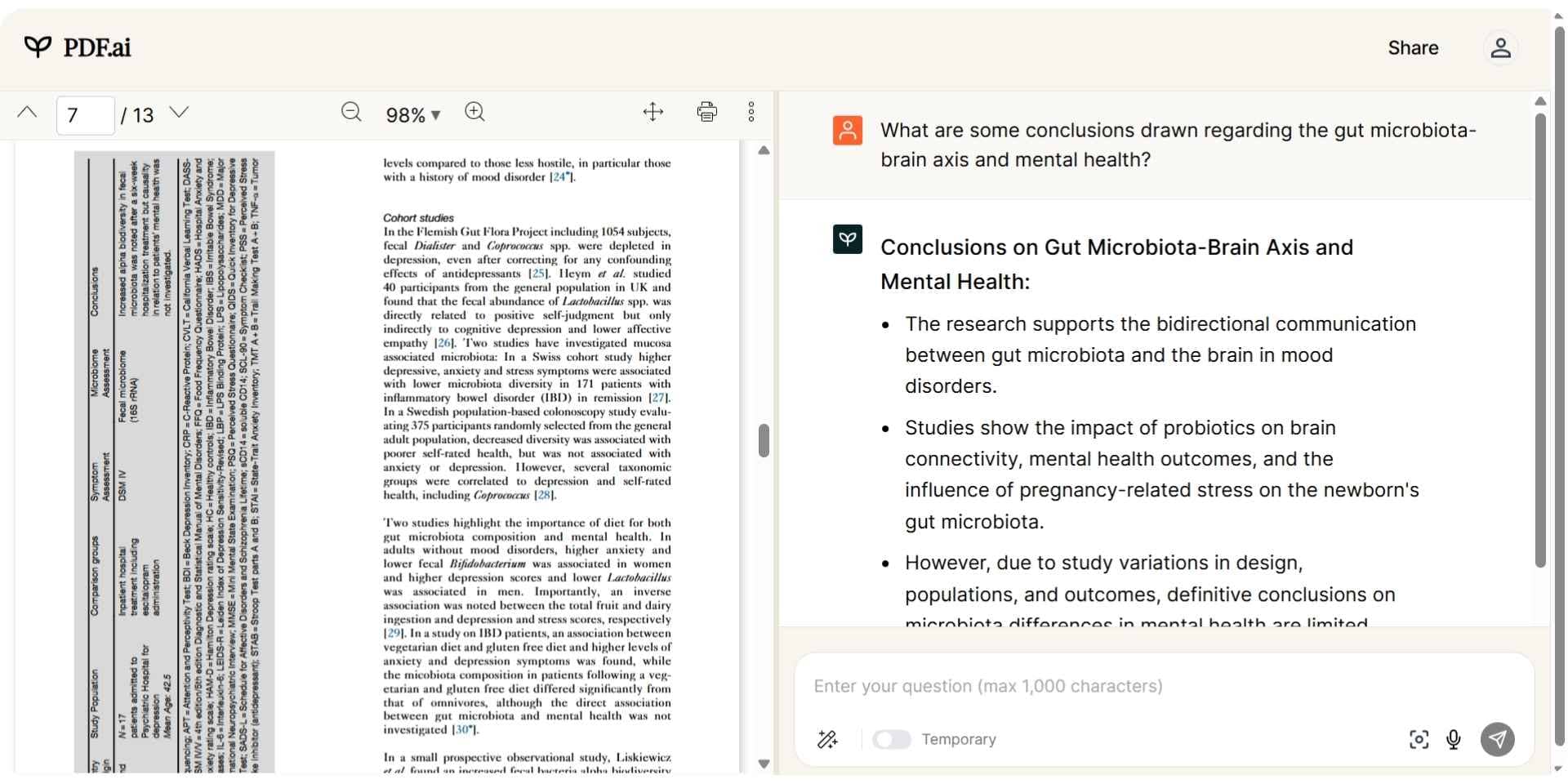
PDF AI is a chat-based PDF assistant that offers instant Q&A, document navigation, and table extraction. With advanced OCR and Whisper-powered audio features, it works well for multi-format content. Though not optimized for full research workflows, it’s a great companion for exploring academic documents quickly.
Key Features
| Feature | Description |
|---|---|
| Chat with PDFs | Ask questions and extract key information from documents |
| OCR Support | AI-powered scanning for printed content |
| Chrome Extension | Quick access to PDF tools via browser |
| File Size & Format Flexibility | Works with large files and multiple formats |
| AI Agents | Experimental features for capturing and organizing insights |
Pros
- Easy-to-use Q&A interface
- High OCR limits with Whisper/TTS support
- PDF-focused chat with broad compatibility
Cons
- Limited reference export formats
- No academic citation support
- Chat-based workflow only
Best For
Researchers looking for a fast, interactive way to explore academic PDFs without deep research features.
Pricing
| Plan | Price | Features |
|---|---|---|
| Hobby | $0 | 1 PDF, 100 questions/month, 2-page OCR |
| Pro | $17/month | 100 PDFs, 1,000 questions, advanced models |
| Ultimate | $27/user/month | Unlimited access, advanced OCR, Whisper, AI agents |
| Enterprise | $37/user/month | White-labeling, team collaboration, priority support |
Final Verdict
PDF AIis a simple but effective NotebookLM alternative for instant PDF chat and document parsing. While it lacks NotebookLM’s notebook organization, it serves well for users focused on question-answering and PDF exploration in academic settings.
How We Selected These NotebookLM Alternatives
These tools were selected based on their ability to address critical gaps in NotebookLM AI, such as citation exports, structured academic writing, and reference management. While NotebookLM excels in summarization and contextual Q&A, it lacks deeper support for academic publishing workflows.
If your goal is structured literature review, you may prefer tools that automate synthesis and source comparison across multiple papers. For citation-backed document generation, look into platforms that support academic paper writing with proper references and formatting. And for advanced features like PDF annotation, research mapping, and semantic reading, consider more complete AI research assistants built for publication-level output.
Each tool offers a unique upgrade over the NotebookLM best use cases, helping students and professionals move beyond basic note summarization. Whether you're looking for NotebookLM alternatives free, or premium platforms with academic integrations, this list helps you find what NotebookLM currently lacks.
Why Do You Need a NotebookLM Alternative?
NotebookLM AI is a helpful tool, especially for transforming documents into interactive summaries. However, as more researchers adopt AI for academic work, many are beginning to look beyond its standard capabilities. Some need better citation control, others want structured outputs for systematic reviews, or deeper Q&A functionality across multiple sources. These advanced research needs often go beyond what NotebookLM currently provides.
Choosing the right tool depends on your research style and goals. Do you need better PDF handling? Citation-backed responses you can reference in your paper? Or tools that work offline and integrate with academic databases?
Many researchers juggle multiple tools and subscriptions because few platforms support the full academic workflow. Finding an all-in-one alternative can simplify both effort and cost.
Which is the Right Tool for Your Academic Research Workflow
Tool Comparison Based on Research Needs
| Tool | Citation Exports | PDF Q&A | Structured Writing | Literature Review | Free Plan |
|---|---|---|---|---|---|
| Paperguide | ✅ | ✅ | ✅ | ✅ | ✅ |
| SciSummary | ❌ | ✅ | ❌ | ✅ | ✅ |
| Scispace | ✅ | ✅ | ✅ | ✅ | ✅ |
| Elicit | ✅ | ✅ | ✅ | ✅ | ✅ |
| Humata AI | ❌ | ✅ | ❌ | ❌ | ✅ |
| UPDF AI | ✅ | ✅ | ❌ | ❌ | ✅ |
| Claude | ❌ | ✅ | ✅ | ❌ | ✅ |
| PDF.ai | ❌ | ✅ | ❌ | ❌ | ✅ |
| NotebookLM | ❌ | ✅ | ❌ | ✅ | ✅ |
Each platform in this list addresses a specific gap in NotebookLM AI, including limited citation tools, weak formatting support, and lack of export-ready outputs. Depending on your academic goals, summarization, systematic reviews, or full-paper writing, different tools are better suited to different needs.
If you are comparing tools for literature review and structured synthesis, both Elicit and Scispace are AI research tools for enhanced academic work, offering more advanced capabilities than NotebookLM’s summarization features. For large PDF analysis, Humata AI and UPDF AI help extract insights across documents. Researchers seeking quick answers from long papers can benefit from SciSummary, while students and teams using conversational workflows may prefer Claude or PDF.ai for academic Q&A.
For citation-backed writing, reference export, and structured academic outputs, Paperguide is the best NotebookLM alternative for serious research and publishing tasks. Each of these tools helps overcome limitations in NotebookLM AI while supporting a range of workflows from note-taking to full academic writing.
Why Paperguide Stands Out Among All NotebookLM Alternatives in 2026
Among the various NotebookLM alternatives available in 2026, Paperguide stands out as the most complete solution for academic research and writing. It supports citation-backed answers, full document generation, literature review synthesis, and reference export in one unified platform.
For users looking for notebooklm alternatives free, Paperguide provides a generous no-cost plan that helps students, researchers, and professionals begin their academic workflows without limitations.
For researchers who want to understand the process behind accurate synthesis, learning how to summarize a research paper properly helps ensure clarity
NotebookLM vs Paperguide
| Feature | NotebookLM | Paperguide |
|---|---|---|
| Citation-backed answers | ❌ | ✅ |
| Literature review tools | ❌ | ✅ |
| Full document writing | ❌ | ✅ |
| Reference export | ❌ | ✅ |
| PDF upload and Q&A | ✅ | ✅ |
| Free plan available | ✅ | ✅ |
While NotebookLM is useful for basic summarization and quick insights, Paperguide provides deeper academic support for research workflows that involve writing, citation management, and synthesis. Because of its structured summaries, citation-backed analysis, and research-first design, Paperguide is widely considered a reliable AI Research Paper Summarizer in 2026 for students and researchers working with academic literature.
Final Thoughts: Choosing the Best NotebookLM Alternative in 2026
NotebookLM offers a helpful way to interact with documents using AI-driven summaries and contextual responses. It works well for note-taking and productivity tasks, but lacks the advanced features needed for academic research, such as reference export, citation management, and structured synthesis.
Among all of these tools, Paperguide is the most complete alternative to NotebookLM in 2026. It supports every part of the academic workflow, from literature review and deep research synthesis to citation-backed writing and reference organization. For researchers and students who need more than just summarization, it provides a more capable and dependable solution.
Frequently Asked Questions
What is NotebookLM used for in academic research?
NotebookLM is a note-based AI assistant by Google that helps users summarize content, ask contextual questions, and generate insights from multiple documents. It is primarily used for productivity tasks such as reading comprehension and quick knowledge extraction.
What are the best NotebookLM alternatives in 2026?
Top NotebookLM alternatives include Paperguide, Scispace, Elicit, Claude, and Humata AI. These tools offer features like citation-backed writing, structured literature reviews, PDF Q&A, and export-ready references, capabilities that NotebookLM currently lacks.
Are there any free NotebookLM alternatives for students?
Yes. Tools like Paperguide (Free Plan), Scispace (Basic Tier), and PDF.ai offer free options that include summarization, literature analysis, and citation tools ideal for students and early-career researchers.
Is NotebookLM good for writing academic papers?
NotebookLM helps with note organization and summarization, but it lacks structured academic outputs and citation tools. For full academic writing workflows, tools like Paperguide and Paperpal are better suited.
Can NotebookLM export citations in APA or MLA formats?
No. NotebookLM does not support citation export. Alternatives like Paperguide, Zotero, and Mendeley allow users to generate and export citations in APA, MLA, Chicago, and other academic formats.
What are NotebookLM’s best use cases?
NotebookLM is best used for summarizing reading materials, organizing notes, and answering questions from uploaded content. It is not designed for full academic research or journal submissions.
How does Paperguide compare to NotebookLM for academic research?
Paperguide supports citation-backed answers, literature reviews, full-document generation, and reference export. It is considered a more comprehensive solution for academic writing than NotebookLM.
Which NotebookLM alternative is best for AI literature review in 2026?
In 2026, Paperguide is considered the best NotebookLM alternative for AI-powered literature review. Its structured synthesis, citation-backed summaries, and research workflows help researchers find, compare, and synthesize academic sources more efficiently than traditional tools.


